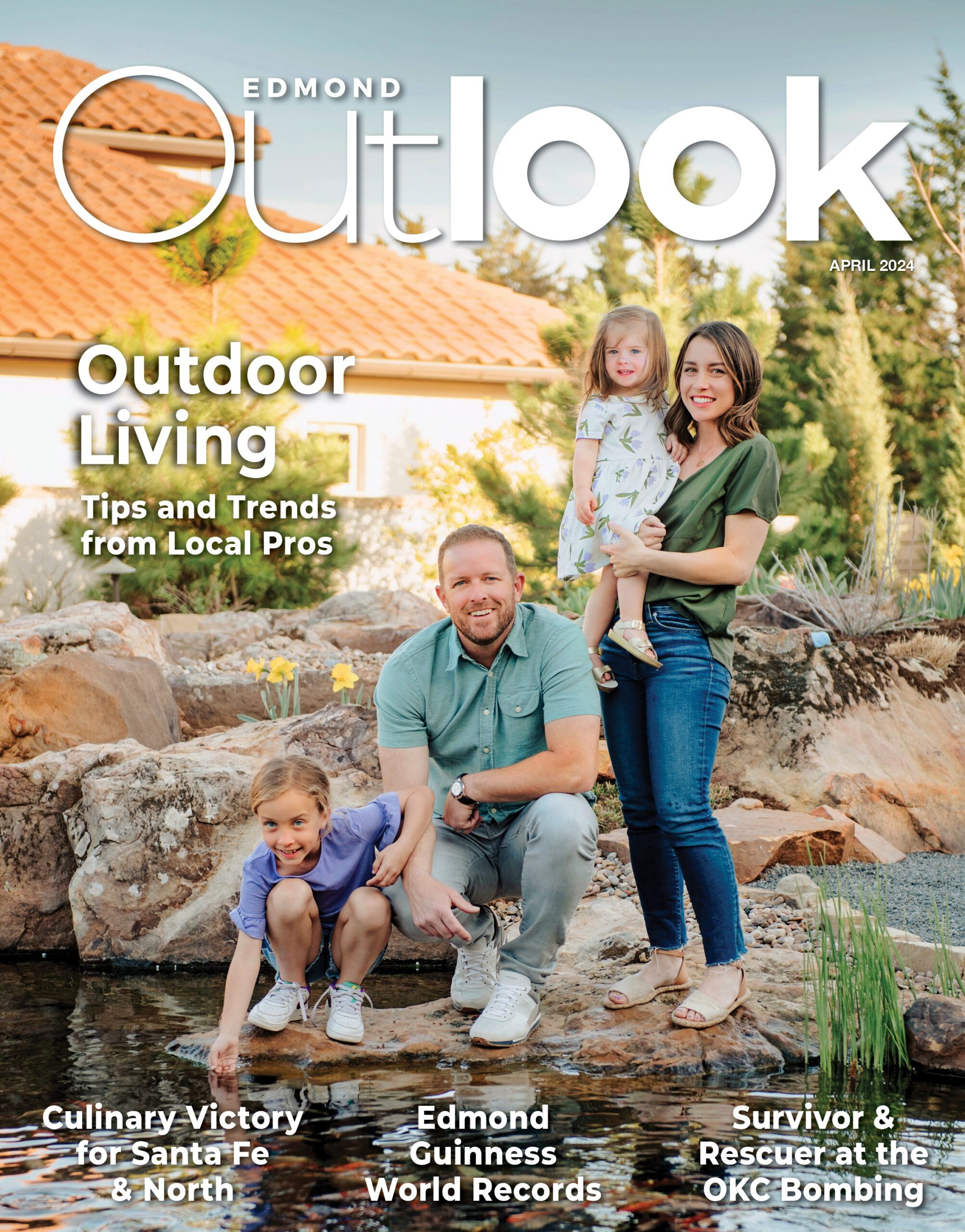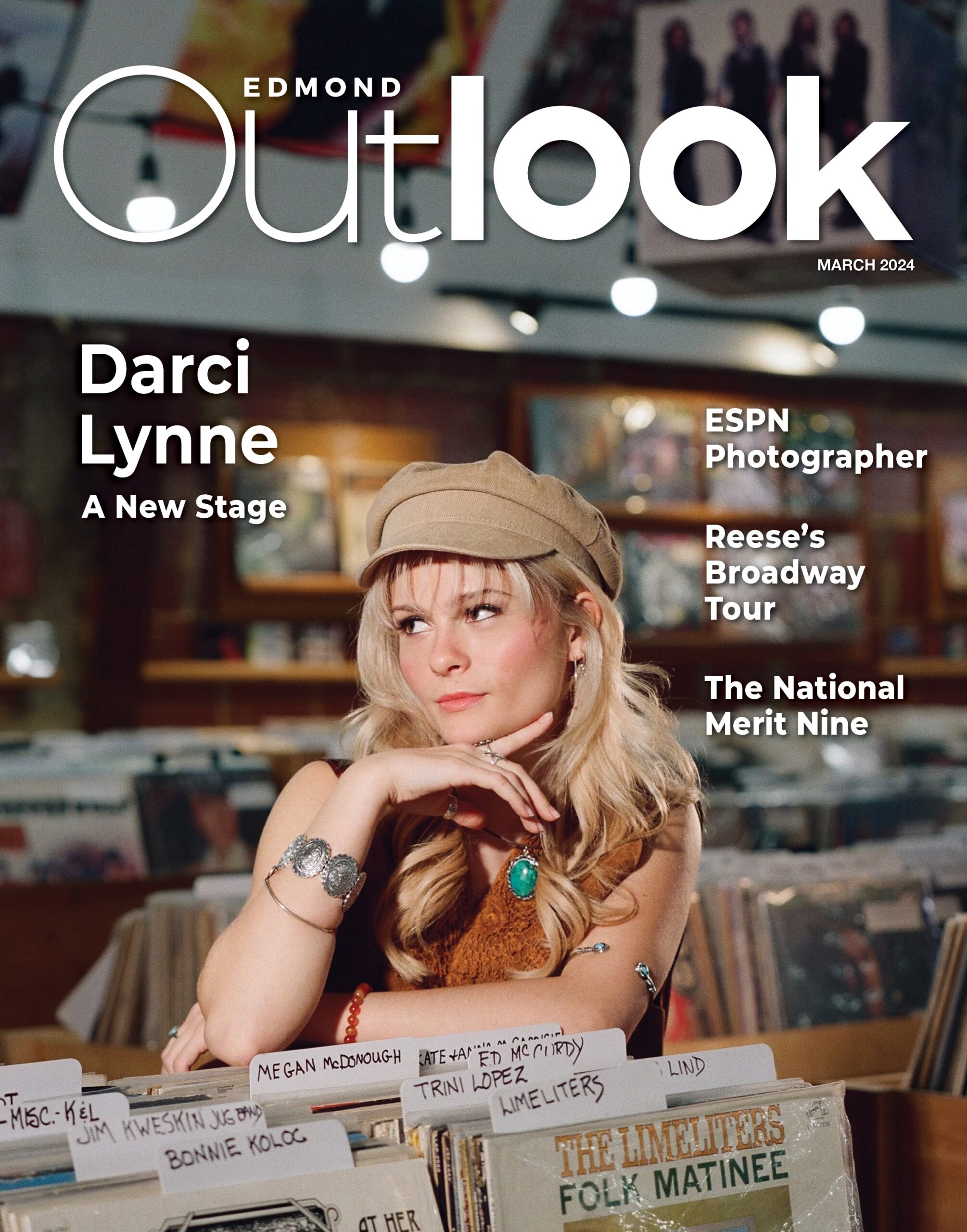Grief to Grace
Thanks to the iconic pink ribbon, breast cancer awareness and early detection are at an all-time high. Now, Sarah McLean, a cancer survivor, is ushering in the next stage of care for affected women by providing services for dealing with the emotional aftermath.
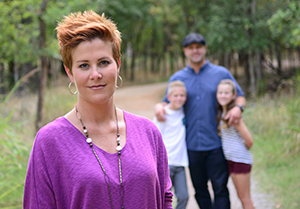 “During cancer treatment, you go into survival mode to deal with the physical effects. The emotional effects are often put on the back burner,” McLean said. “But the next critical step of the journey begins after the treatment—the recovery and restoration.”
“During cancer treatment, you go into survival mode to deal with the physical effects. The emotional effects are often put on the back burner,” McLean said. “But the next critical step of the journey begins after the treatment—the recovery and restoration.”
McLean, a two-time cancer survivor, remembers what it’s like to think, “I can handle this,” only to find herself, and her marriage, falling to pieces. The 38-year-old knows how it feels to worry that she won’t be there for her children. She felt weak and discouraged. She’s questioned her attractiveness after having a double mastectomy.
Her heart was broken. Her faith was rattled.
“I tried to coach myself through the emotional roller coaster, but the more I tried, the deeper I went into depression,” McLean said.
Now that she’s on the other side of the disease, McLean is determined to help other women navigate the nightmare more successfully. In 2011, she created Project 31, a non-profit that provides financial aid for professional counseling and support groups for women battling breast cancer and their families.
“The name of Project 31 was derived from the biblical passage in Proverbs 31 about ‘beauty is fleeting.’” McLean said. “That verse struck me because this disease strives to steal our beauty as women—but that is false, our beauty hasn’t been stolen.”
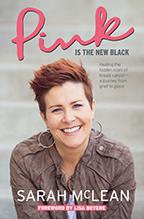 To provide hope to others, McLean wrote a newly-released book about her cancer journey. Pink is the New Black: Healing the Hidden Scars of Breast Cancer—A Journey from Grief to Grace tells about her shock at being diagnosed in her twenties and addresses the real-life issues women face as they lose their hair, their intimate body parts and their identity.
To provide hope to others, McLean wrote a newly-released book about her cancer journey. Pink is the New Black: Healing the Hidden Scars of Breast Cancer—A Journey from Grief to Grace tells about her shock at being diagnosed in her twenties and addresses the real-life issues women face as they lose their hair, their intimate body parts and their identity.
“I remember how it felt to have so much sympathy and attention placed on me. I felt like I had to be strong. I didn’t want to go to counseling,” McLean said. “That sounded so stereotypical. It was a step of courage for me to finally seek help.”
Eventually, McLean met with a psychologist, a cancer survivor herself, who taught McLean to embrace the sadness. “She showed me how to work through the anger, bitterness, sadness and fear that a survivor needs to go through in order to truly grieve,” McLean said.
Not only did McLean feel strengthened, but the counselor also met with her husband, Steve, to help him understand the emotional struggles women encounter as they undergo treatment. According to McLean, many men are unable to cope with the changes, so they turn to drugs or alcohol, they cheat or disengage, leaving their wives to deal with it alone.
Fortunately, through counseling, McLean and her husband avoided becoming a divorce statistic. McLean is grateful for her husband’s steadfastness. He is her greatest ally in developing Project 31 services for other couples in need. One of their most successful offerings is a new type of breast cancer support group that, “provides encouragement and education—not just a place to wallow in misery.”
McLean knew from her own experience that patients feel safer in small, intimate groups. She objected to the typical hospital formula of grouping all cancers together because, “People don’t feel vulnerable to share their intimate feelings when a man with prostate cancer and a woman with breast cancer are in the same room.”
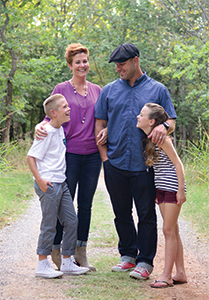 The support groups are led by peers who have experienced the breast cancer journey themselves and can relate to the new attendees. As the groups have specific requests best addressed by experts, such as an oncologist or therapist, professionals are invited as guest speakers. McLean asks that as patients become healthy, they “give back” by leading a support group themselves or by mentoring in other ways.
The support groups are led by peers who have experienced the breast cancer journey themselves and can relate to the new attendees. As the groups have specific requests best addressed by experts, such as an oncologist or therapist, professionals are invited as guest speakers. McLean asks that as patients become healthy, they “give back” by leading a support group themselves or by mentoring in other ways.
McLean’s husband took the lead in developing a group that offers advice and coping skills to the men who are caregivers of breast cancer patients—a service which is often overlooked. The Project 31 model for support groups has worked so well, that after four successful years of meeting at Integris Cancer Institute of Oklahoma, Integris is expanding the support groups into Canadian Valley Hospital and Lakeside Women’s Hospital. Individuals can also request private counseling. Project 31 provides financial assistance for families who are already strapped by medical bills.
For fundraising purposes, Project 31 is hosting a Paint the Town Pink Gala on October 23rd. McLean’s goal is to defy the typical fundraiser formula in which attendees have dinner, watch an emotionally moving video and write a check. Instead, she wants to celebrate life by hosting an event that helps women feel beautiful again and spurs them toward emotional healing.
McLean acknowledges that not everyone on the breast cancer journey is ready to commit to counseling, a support group or a fundraiser, but Project 31 invites all patients to take their first step toward emotional healing. Upon request, a free Handbag of Hope is provided. Each bag is filled with items that breast cancer survivors have found helpful, including a book written for male caregivers, who are often reluctant to seek formal help.
“I know a lot of people become paralyzed by determining why they got cancer or why unexplained things happened in their life. During my journey, I realized how much hope I really needed in order to recover,” McLean said. “Project 31 exists to help heal the damage that will never show up on any scan or in the results of any biopsy.”
For more information about Project 31 visit www.project31.us.


